In 2025, choosing the right rugged smartwatch means balancing durability, battery life, and navigation features. Whether you’re hiking, diving, or working on a construction site, the right watch can make the difference between failure and safety.
What Is a Rugged Smartwatch and Why It Matters
A rugged smartwatch also called a durable smartwatch or tough smartwatch is designed to endure environments where ordinary wearables quickly fail. Unlike fashion-focused models, rugged watches are built for outdoor, tactical, and industrial use.
The key benchmark for ruggedness is the MIL-STD-810H certification, a U.S. military standard that measures resistance to extreme conditions such as shock, vibration, dust, humidity, high altitude, and severe temperatures.
This matters because it ensures the device isn’t just marketed as “strong” but is proven in controlled military-grade tests.
For hikers, divers, soldiers, or professionals working in unforgiving environments, this certification makes the difference between a smartwatch that merely looks tough and one that actually protects your safety when it matters most.
Key Features Every Rugged Smartwatch Must Have
Water and Dust Resistance: Without IP68, IP69K, or at least 10ATM waterproofing, a smartwatch is vulnerable. Studies show water damage remains one of the top causes of smartwatch failures, making this a baseline for rugged models.
Battery Endurance: A long-lasting battery is critical because charging isn’t an option mid-expedition. Research shows cold weather cuts battery capacity by up to 40%, so efficient power management is essential in a rugged outdoor smartwatch.
Shock Resistance: Drops happen on trails, battlefields, and job sites. Reinforced bezels, titanium frames, and Gorilla Glass protect against costly replacements.
Multi-Satellite GPS: Rugged environments often block signals. GPS combined with GLONASS and Galileo ensures accurate navigation when one system fails—critical in mountaineering or military operations.
Health Tracking That Works Outdoors: Not just step counts—rugged watches measure SpO₂, heart rate, and sleep reliably, even at high altitude or in freezing conditions.
Rugged Smartwatch for Outdoor Adventures and Harsh Environments
Outdoor activities push technology far beyond office use.
A 2024 Journal of Outdoor Recreation and Tourism study noted that over 40% of smartwatch failures in extreme environments were caused by poor durability and battery loss.
This is exactly where outdoor rugged smartwatches prove their worth—whether you’re climbing, skiing, diving, or working in heavy industry.

Hiking and Mountaineering
In remote mountains, reliability outweighs style.
- Multi-satellite GPS ensures accurate tracking in weak-signal zones.
- Long battery life prevents mid-hike shutdowns.
- Barometric altimeters give precise altitude data for safe navigation.
Skiing and Snowboarding
Sub-zero weather challenges both people and devices.
- Rugged watches withstand extreme cold without rapid battery drain.
- Shock resistance protects against falls on icy slopes.
- Real-time altitude and speed data improve both safety and performance.
Diving and Swimming
Underwater use requires more than casual splash resistance.
- 10ATM waterproof ratings guarantee survival at depth.
- Strong casings resist pressure and saltwater corrosion.
- Depth and duration tracking improves dive safety.
Construction and Industrial Work
Worksites are brutal on fragile devices.
- Shockproof builds survive drops and heavy vibrations.
- IP68/IP69K seals block dust, mud, and grime.
- Physical buttons remain functional even with gloves.
Best Rugged Smartwatches in 2025
Rugged smartwatches in 2025 range from military smartwatches built for tactical use to budget-friendly outdoor models. Each has unique strengths and trade-offs.
| Model | Strengths | Weaknesses | Price Range | Best For |
|---|---|---|---|---|
| Garmin Instinct 2 Solar | Military-grade durability; solar charging extends multi-week use; accurate GPS in remote areas. | Bulkier design; higher price; limited lifestyle app ecosystem. | $350–$450 | Long-distance hikers, military, survivalists |
| Suunto Vertical | Exceptional battery life; precise GPS/altitude; 10ATM water resistance. | Expensive; heavier on the wrist; steeper learning curve for new users. | $500–$600 | Mountaineers, expedition explorers |
| Garmin Fenix 7 Pro | Premium build with sapphire glass; advanced topo maps and navigation; comprehensive training metrics. | Very costly; battery endurance lower than Suunto Vertical in expedition modes. | $650–$800 | Professional athletes, ultrarunners |
| Coros Vertix 2 | Extreme endurance; dual-frequency GPS; lightweight titanium case; popular with ultra-endurance users. | Smaller app ecosystem; fewer smartwatch-style features. | $500–$700 | Endurance athletes, ultra hikers |
| KOSPET Tank T3 Ultra | Budget-friendly; IP69K waterproof;shockproof casing; long standby time for daily rugged use. | Limited advanced navigation; bulkier than mainstream smartwatches. | $120–$150 | Industrial workers, budget-conscious adventurers |
also read: The Best Smartwatch for Construction Workers in 2025
How to Choose the Right Rugged Smartwatch for Your Needs
The most effective way to choose a rugged smartwatch is to match it to your environment and lifestyle. Start with your main use case, then check durability, battery, comfort, and budget.
Define Your Use Case: Mountains, underwater, industrial sites, or daily commuting. This instantly narrows your options.
Check Durability Standards: Look for MIL-STD-810H, IP68, IP69K, or 10ATM ratings. If specs are unclear, avoid the model.
Match Battery to Your Scenario: Hikers need multi-day GPS. Divers need resistance to repeated saltwater dives.
Consider Comfort vs Bulk: Some tactical smartwatches feel like tanks. If you want office-to-outdoor versatility, choose slimmer rugged models.
Budget Wisely: Casual adventurers may choose KOSPET smartwatch or entry models. Professionals relying on navigation and safety should invest in Garmin or Suunto.
By following these steps, you turn technical jargon into a clear decision-making process, ensuring your rugged smartwatch actually supports your lifestyle.
Conclusion
Rugged smartwatches aren’t just accessories—they’re survival tools for outdoor, tactical, and industrial use. In 2025, their value lies in proven reliability: resisting water, shocks, and extreme conditions where regular smartwatches fail. The right choice depends on your environment, but the principle is the same—choose a watch you can trust when it matters most.
FAQs
Are rugged smartwatches worth it?
Yes. If you hike, dive, ski, or work in industrial environments, a rugged smartwatch offers real protection against water, shock, and extreme weather—conditions that quickly destroy standard models.
What is MIL-STD-810H certification, and why does it matter?
MIL-STD-810H is a U.S. military testing standard that measures durability against shock, vibration, dust, humidity, and extreme temperatures. A watch with this certification has been stress-tested under controlled conditions, proving it can survive where normal smartwatches fail.
Can I swim or dive with a rugged smartwatch?
Yes—if it has at least a 10ATM or IP69K waterproof rating. This means it can handle deep-water pressure and resist saltwater corrosion, making it suitable for diving and prolonged underwater use.




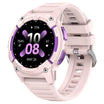
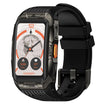
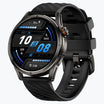
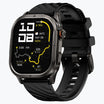
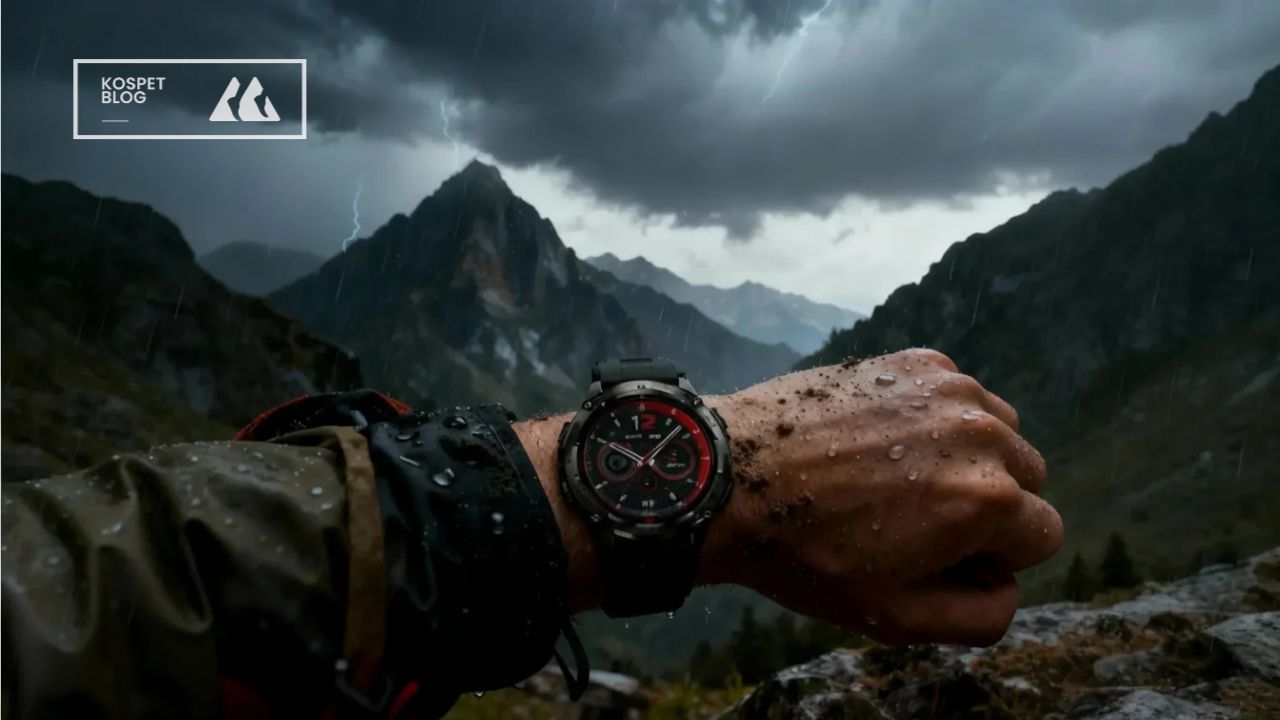






Leave a comment
All comments are moderated before being published.
This site is protected by hCaptcha and the hCaptcha Privacy Policy and Terms of Service apply.